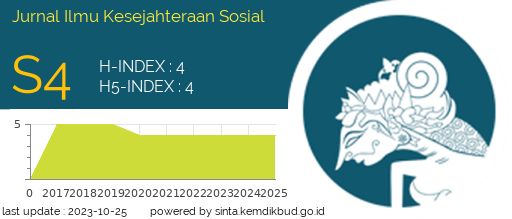Publication Ethics
The Journal of Social Welfare Science is dedicated to maintaining the highest ethical standards in the publication process. By adhering to these ethical guidelines, we seek to foster trust and confidence in the research we publish and contribute to the advancement of knowledge in the field of social welfare.
Authors, reviewers, and editors are expected to comply with these following ethical guidelines:
Duties of Authors
- Ensure that their work is original and has not been published in another journal, either in part or in full.
- Provide accurate and complete information about their research methodology, findings, and conclusions.
- Cite all relevant sources and obtain necessary permissions for the use of copyrighted material.
- Avoid plagiarism, including self-plagiarism, by appropriately citing previous work and ideas.
- To prevent the possibility of data fabrication and falsification, editors should have access to all research-related data.
- The research informant's identity has not been revealed in any way that could be used to identify them in a description, photo, or family history. The written consent should be given and explicitly stated when the research informant photographs became crucial and indispensable scientific data.
- Promptly notify the editor if they discover any significant errors or inaccuracies in their published work and cooperate with any requests for corrections or retractions.
Duties of Reviewers
- Conduct their evaluations objectively and provide constructive feedback to authors, focusing on the scientific merit and validity of the research.
- Maintain confidentiality regarding the manuscripts they review and refrain from discussing or disclosing details about the submitted work without the editor's permission.
- Notify the editor of any ethical concerns related to the submitted work, such as suspected plagiarism, data fabrication, or unethical research practices.
- Complete their reviews in a timely manner and communicate any potential delays to the editor as soon as possible.
Duties of Editors
- Oversee the peer-review process impartially and make publication decisions based on the scientific validity, originality, and significance of the research.
- Ensure that all published articles comply with the journal's editorial policies and ethical guidelines, including standards for authorship, citation, and data integrity.
- Handle manuscripts fairly and transparently, without bias or discrimination based on factors such as race, gender, religion, or nationality.
- Address any allegations of misconduct or ethical breaches promptly and thoroughly.
- Maintain confidentiality regarding the identities of authors, reviewers, and other individuals involved in the publication process, except when disclosure is necessary for addressing ethical concerns or conflicts of interest.
- Provide editorial decisions for the author promptly and communicate potential delays.
Conflict of Interests
Conflicts of interest may arise when individuals' professional or personal interests could unduly influence their actions or decisions. Authors, reviewers, and editors should:
- Disclose any financial interests, affiliations, or personal relationships that may pose a conflict of interest with respect to the research or publication process.
- Refrain from engaging in activities or behaviors that could compromise their objectivity, impartiality, or credibility as participants in the peer-review and publication process.
- Act transparently and ethically in managing conflicts of interest, disclosing relevant information to the editor or relevant parties as necessary to ensure the integrity of the publication process.




